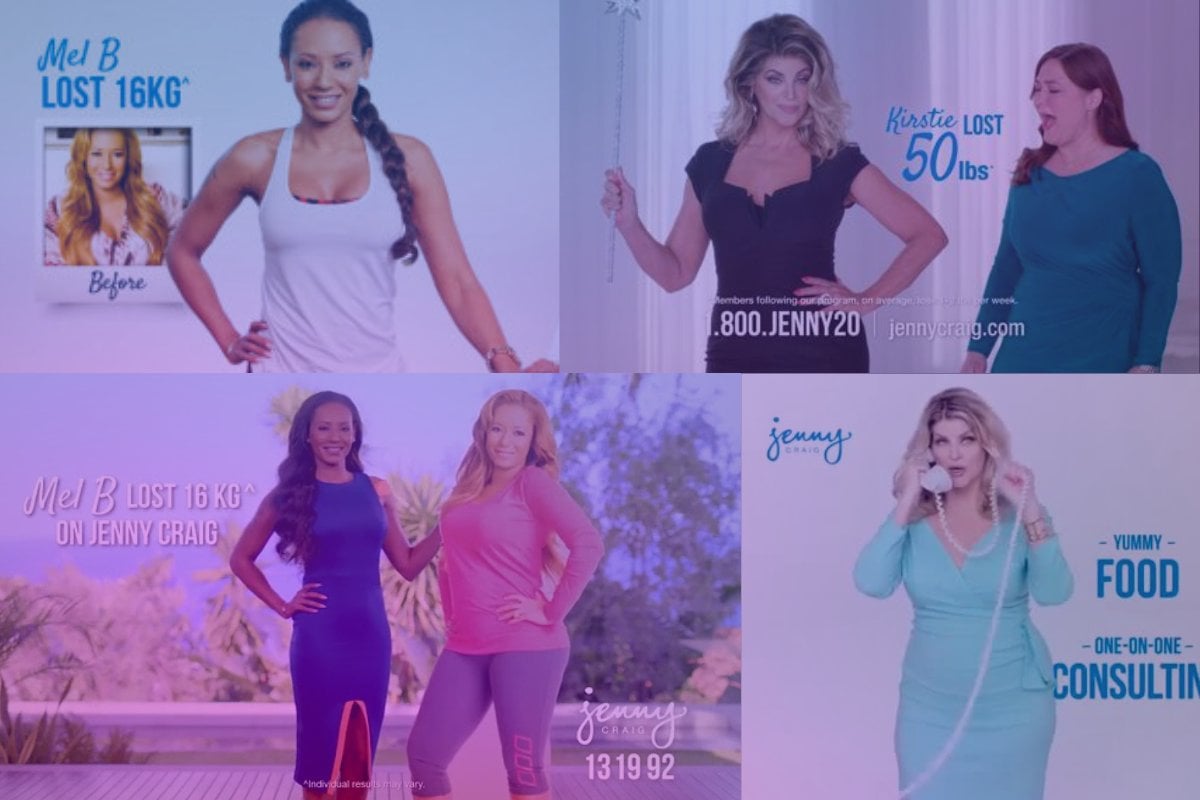
After almost four decades of feeding women messages like, “Hey! You’re chubby, too. Let’s lose weight together!” (uh, thanks, Kirstie Alley), weight-loss giant Jenny Craig has collapsed.
The Australian arm of Jenny Craig has gone into voluntary administration after the US parent company filed for bankruptcy last week.
Could this major news mean we are witnessing the end of diet culture?
Did Jenny Craig fail, because in 2023, our world is leaning harder than ever into body positivity? A world that prioritises healthy lifestyles over waif-thin bodies, while Jenny Craig was still selling itself as a “Weight Loss Program”?
Or as one person on the Mamamia team asked, “Is it so deeply uncool to talk about wanting to lose weight that their audience was ageing out?”
Graeme Hughes from the Griffith Business School thinks so. He tells Mamamia: “The glitz and glam of the '80s [weight-loss programs] really hasn’t transitioned well into the 21st century.
“The brand itself has really moved out of step with the consumer.”
Watch: Lindy West discuss why she will never be thin. Post continues after video.
Mamamia’s Clare Stephens has a different take.
As she says on Mamamia Out Loud: “The demise of Jenny Craig does not symbolise the downfall of diet culture.
“What it does signal is a shift from ‘overt’ to ‘covert’ diet culture.”

Top Comments